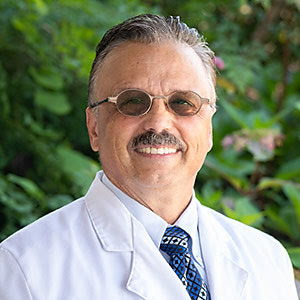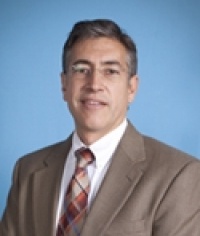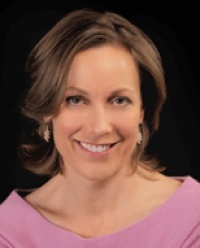
Umberto (Gary) Fontana, MD, FACC
Cardiologist | Interventional Cardiology
709 N JUSTICE ST STE A HENDERSONVILLE NC, 28791About
Dr. Umberto (Gary) Fontana is a cardiologist practicing in HENDERSONVILLE, NC. Dr. Fontana specializes in diagnosing, monitoring, and treating diseases or conditions of the heart and blood vessels and the cardiovascular system. These conditions include heart attacks, heart murmurs, coronary heart disease, and hypertension. Dr. Fontana also practices preventative medicine, helping patients maintain a heart-healthy life.
Education and Training
Virginia Commonwealth University School of Medicine 1987
Board Certification
Cardiovascular Disease (Internal Medicine)
American Board of Internal Medicine (ABIM)
Provider Details

Umberto (Gary) Fontana, MD, FACC's Expert Contributions
Why do I feel pain at my heart while breathing, swallowing, and coughing?
I am sorry you have felt so bad for so long. I like you, believe it is gastrointestinal. The vomiting can irritate the esophagus and cause “chest pain”. I believe you need to see a gastroenterologist. If you have seen one, the you need to be referred to a tertiary care facility to be to the bottom of your situation. It sounds either infectious or inflammatory. READ MORE
High cholesterol?
This is a common question. By definition you have “familial hyperlipidemia” - a genetically based cause for high cholesterol. Most family members have have examples of early onset of vascular disease (heart attacks, strokes, peripheral vascular disease). It sounds like you are doing everything to keep yourself health but as they say:”you can’t pick your parents”. Statins were designed to treat this condition and prevent the ravages of vascular disease. If you need more motivation, some doctors will order a calcium score ((CAC), which measures non invasively the amount of plaque build up in the coronary arteries. Statins are very well tolerated and significantly reduce events in patients with coronary disease and those with familial hyperlipidemia. Do your research but you may need to referred to a lipid specialist for guidance. READ MORE
Diminutive circumflex artery?
Everyone has anatomical variance of the size major and minor branches. If one vessel is diminutive it just means another artery is bigger to make up the difference. The cath is done to make sure reduced blood flow is not the cause of the heart irritability.The PVCs are an abnormal electrical discharge. In your case, with normal pump function and normal blood flow you may need to be treated (beta blockers, anti-arrhythmic drugs). Would make sure your potassium , magnesium and thyroid levels are normal. A dilated RV may be due to high pressures on the right side of your heart due to COPD, sleep apnea, pulmonary hypertension. READ MORE
How do you fix a heart arrhythmia?
It depends on the location of the arrhythmia. Options include medicines (beta blockers and anti-Arrhythmic drugs) and ablation. Usually overseen by an electrophysiologist. READ MORE
High blood pressure?
Not necessarily. If slender and active may be normal. Could be indicative of dehydration however if he is dizzy or lightheaded. READ MORE
How do you stay in the hospital after heart stent surgery?
If the patient lives close to the hospital (within 20 miles), they can go home the day of the stent procedure if done through the wrist artery (radial) and completed before noon. If the procedure is done late in the day or if there are any complications (chest pain, threatened closure, arrhythmias, bleeding, etc.), the patient can usually be discharged the next day. READ MORE
What foods to avoid after heart stents?
A heart healthy diet includes a diet rich in Omega 3 fatty acids (as in cold water fish cod, salmon, etc.) low in saturated fats, low in cholesterol, and restricted in calories if not at an ideal body weight. A Mediterranean diet is also rich in fruits, vegetables and nuts. Omitting trans fatty acids, butter , margarine or shortening in cooking and substituting olive oil, sesame seed oil, safflower oil, grape seed oil, or avocado oil. READ MORE
Concerned chest pain?
We characterize chest pains as non-cardiac, cardiac and atypical for cardiac. This characterization is dependent upon the quality, location, duration, alleviating or exacerbating features. Certainly based on location, quality and radiation the symptoms are concerning. It is uncommon for a 33 year old to have coronary artery disease (CAD) unless you smoke, have an elevated cholesterol or you have a family history of early CAD. Ischemic symptoms can be seen in the setting of vasospasm (spontaneous or due to use of cocaine) or due to congenital anomalies of the coronaries. Esophageal spasm can mimic heart pains. Evaluation may include an echocardiogram, a stress test or coronary CT scan to qualify further. READ MORE
How painful is bypass surgery?
Coronary artery bypass surgery is major surgery but is generally well tolerated. Sternal healing generally takes 4-6 wks but can take longer. The subjective perception of pain post bypass is quite variable. In general, little old ladies seem to complain less than younger more active males. READ MORE
How long do you stay in ICU after bypass?
Pt generally stays in the ICU post CABG for 24-48 hrs and in the hospital for 4-7 days. ICU stays may be longer if there are any complications like post op bleeding, heart failure, arrhythmias, or infection (pneumonia, sepsis). READ MORE
How can I treat heart inflammation after COVID?
No specific treatment for COVID myocarditis exists or any viral myocarditis for that matter. All treatment is supportive with blood pressure supporting and heart failure medicines (ionotropes, ACE inhbitors, beta blockers) and supportive devices (balloon pump, left ventricular assist devices) and rhythm controlling medicines as needed. In patients with intractable heart failure, cardiac transplantation is indicated. READ MORE
What medication is given to lower heart rate?
Instead of just treating a high rate it is important to elicit the cause of the elevated heart rate. If it is "sinus tachycardia" the causes include pain, anemia, dehydration, infection, low oxygen level, stress, deconditioning, fever, hyperthyroidism among many others. If the rhythm is atrial fibrillation the classes of drugs that lower heart rate include beta blockers, negative chronotropic (heart rate slowing) calcium channel blockers, Digoxin, and anti-arrhythmic drugs such as Sotalol (potassium channel blocker) and Amiodarone (multiple class effects-beta blocker, calcium channel blocker, potassium and sodium channel blocker). READ MORE
Is reduced-fat milk good for your heart?
Skim or no fat milk has all the calcium of whole milk but none of the fat so it is part of a low fat, heart healthy diet. Milk is high in calcium which promotes bone health. There is some evidence that calcium supplements cause an increased risk of heart disease but food sources of calcium have not been shown to be associated with such risk. Grass fed cows milk is higher is omega 3 fatty acids which reduces the risk of heart attacks, strokes, and deaths from heart attacks. READ MORE
What medication lowers BP?
The broad classes of drugs which lower BP include diuretics, beta blockers, ACE inhibitors, angiotensin receptor blockers, calcium channel blockers, alpha blockers, vasodilators and alpha 2 agonists. The choice of meds is based on age, race and other medical problems. READ MORE
How can I lower my blood pressure instantly?
I am assuming you are asking about non pharmacologic means of lowering blood pressure since there are many medications given sublingual and intravenously that can almost instantaneously reduce BP (SL NTG, IV Hydralazine, IV Nitroprusside, SL Nifedipine etc). Biofeedback and progressive relaxation exercises can rapidly bring down BP non pharmacologically. By mouth meds such as Clonidine can lower BP in 30 minutes. READ MORE
Is chest pain after heart bypass surgery normal?
The goal for bypass is to relieve angina by completely revascularizing or "bypassing" all your blockages. In some cases the arteries are too small to bypass and hybrid procedures that open up remaining blockages with balloons or stents or using medicines that either reduce demands or improve supply. If the pain is non ischemic or not related to reduced blood flow, it can be post surgical and NSAID's, pain threshold altering meds (Neurontin, SSRI 's) and for pericardial (heart sac) pain can be treated with a gout medicine, Colchicine. The way to differentiate the pain, in brief, if is similar to your pre CABG symptoms you need to see your cardiologist to discuss your options. If it is worse with deep inspiration, cough, certain positions, it is sharp if character and brief in duration it is most likely post surgical and if within a month of surgery the surgeons usually address. If after one month, your cardiologist can address. READ MORE
Can I drink coffee after heart bypass surgery?
Despite strong opinions on the issue, there is no definitive randomized trial to guide recommendations. Most studies are based on patient reported intake. Low to moderate coffee consumption (1-3 cups) may protect against heart attacks. Heavy coffee intake may trigger coronary or arrhythmic events in susceptible individuals. Post CABG patients are at higher risk for arrhythmias. Most surgeons recommend restricting caffeine intake for 4-6 wks post op. READ MORE
Is it safe to exercise with a heart murmur?
As a general rule, murmurs due to severe narrowing of valves can predispose individuals to syncope (passing out, arrhythmias and rarely sudden cardiac death), chest pain and shortness of breath. Leaky valves, on the hand, can be asymptomatic for a long time and exercise is generally well tolerated unless the the leakiness is severe or of acute onset. If you have a murmur, a good history and physical exam and likely an echocardiogram would be necessary to clear you to engage in a regular exercise program. READ MORE
What should I do if my blood pressure is high?
The approach to elevated BP is first to document it is not episodic or stress related (so called "white coat hypertension") and assessing for comorbid medical problems (Diabetes and chronic renal insufficiency). If BP is persistently elevated and mild (Systolic (top number) above 140 mm Hg or diastolic (lower number) above 85 mm Hg) salt and alcohol intake restriction and weight reduction may be a first step. If moderately elevated (Systolic above 160 mm Hg, diastolic above 100 mm Hg) and higher risk mitigating factors, BP meds may be started. Since your kidney function and blood sugar would also need to be assessed would recommend seeing an internist or family doctor to discuss your individual situation. READ MORE
How can I keep my heart healthy after bypass surgery?
One of the most important interventions post CABG is enrolling in cardiac rehab which can reduce mortality by 25-30%. In addition, indefinite aspirin, high dose statin therapy, risk factor modification (Smoking cessation, controlling BP, controlling DM), and a regular exercise program are the hallmarks of a heart healthy lifestyle. READ MORE
Areas of expertise and specialization
Faculty Titles & Positions
- Ex Director of Cardiac Rehab Northeast Medical Center 1994 - 2001
- Ex Director of Echocardiography Vidant Cardiolgy 2001 - Present
Awards
- Just Say Yes 2016 Vidant Medical Center
- Top Doctors 2021 Top Doctors
Treatments
- Heart Disease
- Heart Failure
- Coronary Artery Disease (cad)
- Pain
- Vascular Disease
Professional Memberships
- American College of Cardiology
Fellowships
- Medical University of South Carolina
Charities and Philanthropic Endeavors
- Ex American Heart Association President Cabarrus County
Treatments
- Coronary artery disease, hypertension, arrhythmias, syncope.
Internships
- Cardiology
Fellowships
- Interventional Cardiology
Professional Society Memberships
- American College of Cardiology
Awards
- Just say yes award, Top doctors North Carolina
Hobbies / Sports
- Playing guitar, tennis
Umberto (Gary) Fontana, MD, FACC's Practice location
HENDERSONVILLE, NC 28791Get Direction
Umberto (Gary) Fontana, MD, FACC's reviews
Write ReviewPatient Experience with Dr. Fontana
Media Releases
Get to know Cardiologist Dr. Umberto Gary Fontana, who serves patients in Hendersonville, North Carolina.
A highly trained cardiologist, Dr. Fontana is an attending physician at Pardee Cardiology Associates, an affiliate of Pardee UNC Health Care. He also holds privileges at Pardee Hospital in Hendersonville, North Carolina.
In practice for over 25 years, he focuses on providing compassionate and competent care to his patients. His areas of special interest include interventional cardiology, coronary artery disease, congestive heart failure, atrial fibrillation, hyperlipidemia.
At Pardee UNC Health Care, patients will find a multitude of comprehensive heart and vascular services to ensure that they get the best possible results, from diagnostic testing and minimally invasive procedures, to vascular emergency surgery. Their diverse cardiology team is led by physicians and surgeons with nationally recognized backgrounds. The continued growth of their cardiology team is part of their commitment to bringing their community the care they deserve, close to home.
The doctor’s acclaimed career in medicine began after he earned his medical degree from the Virginia Commonwealth University School of Medicine. He then went on to complete his internship, residency, and fellowship training at the Medical University of South Carolina.
An expert in his field, Dr. Fontana is board-certified in interventional cardiology, cardiovascular disease, and internal medicine by the American Board of Internal Medicine (ABIM). The ABIM is a physician-led, non-profit, independent evaluation organization driven by doctors who want to achieve higher standards for better care in a rapidly changing world.
Achieving fellowship status, he is a Fellow of the American College of Cardiology (FACC).
Cardiology is a branch of medicine that deals with the disorders of the heart, as well as some parts of the circulatory system. The field includes medical diagnosis and treatment of congenital heart defects, coronary artery disease, heart failure, valvular heart disease, and electrophysiology. Cardiologists are doctors who diagnose, assess, and treat patients with diseases and defects of the heart and blood vessels (the cardiovascular system).
In his leisure time, Dr. Fontana enjoys playing music (guitar) and singing in a local band. He exercises on a daily basis and especially loves playing tennis.
Recommended Articles
- Alternative Remedies to Treat Cardiovascular Diseases
Herbal Treatment of the heart has been used by mankind for centuries and has shown an excellent effect. Especially effective was the use of medicinal plants in the case of chronic diseases, such as atherosclerosis and hypertension, where treatment involves a particular duration and a comprehensive...
- The Correlation Between Height and Heart Disease Risk
The New England Journal of Medicine recently published research linking height and coronary artery disease through the study of genetics. Doctors have known since the 1950s about the link between short stature and coronary artery disease, “but the reason behind this really hasn’t been completely...
- 5 Tips on Living with High Blood Pressure
Living with high blood pressure is never easy. You have to watch yourself constantly with the knowledge that your body is malfunctioning. Most of the people who are diagnosed with this condition become depressive and lose the will to live. You have to know that even if you are diagnosed with high...
- What You Need to Know About Coronary Heart Disease (CHD)
What is CHD?Coronary heart disease (CHD) is the disease that develops when there is an insufficient oxygen supply to the heart muscle by the coronary arteries. The most common reason for this is atherosclerosis of the coronary arteries with cholesterol plaques formation and narrowing of the arterial...
- Calcium Supplements Can Increase Your Risk for Heart Attacks
According to new research, calcium supplements are usually taken by elderly people and post-menopausal women to prevent their bones from thinning. Now, it may increase the risk of a heart attack. Researchers suggest that these drugs should be taken with caution.Some of the earlier studies reported...
- Non-Medical Treatments for High Blood Pressure
High blood pressure, or hypertension, is a critical condition that should be taken very seriously. If left untreated for a long period of time, it can lead to fatal consequences. Many people who suffer from this condition underestimate its significance and do not follow their doctors' orders. It is...
Nearby Providers
- Eduardo Balcells MD709 N JUSTICE ST STE A HENDERSONVILLE NC 28791
- Leslie A Campbell MD709 N JUSTICE ST STE A HENDERSONVILLE NC 28791
Nearest Hospitals
MARGARET R PARDEE MEMORIAL HOSPITALl
800 N JUSTICE ST HENDERSONVILLE NC 28791PARK RIDGE HEALTHl
100 HOSPITAL DRIVE HENDERSONVILLE NC 28792TRANSYLVANIA REGIONAL HOSPITAL, INCl
90 HOSPITAL DRIVE PO BOX 1116 BREVARD NC 28712






